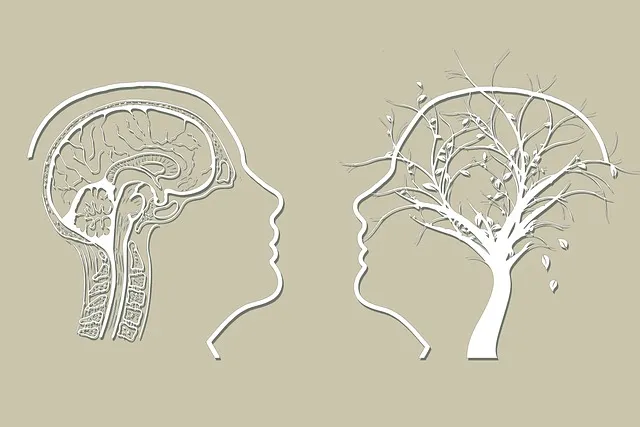Castle Rock Kaiser's mental health classes are innovative public awareness initiatives using interactive workshops to educate communities about wellness, reduce stigma, and foster empathy. Targeted audience segmentation ensures tailored messages for diverse groups' unique mental health needs. Engaging content, blending storytelling and visuals, inspires open conversations. Digital tools like social media, webinars, and virtual reality amplify reach and engagement, while robust measurement assesses campaign impact and informs program improvements.
In today’s digital age, public awareness campaigns play a pivotal role in disseminating vital information. The Castle Rock Kaiser mental health classes serve as a compelling example of how targeted initiatives can make a significant impact. This article delves into the strategic development of such campaigns, exploring key aspects from understanding the audience to leveraging modern technologies. By examining the success of the Castle Rock Kaiser model, we uncover effective content design, measurement techniques, and iterative improvements crucial for enhancing mental health awareness on a broader scale.
- Understanding Public Awareness: The Castle Rock Kaiser Mental Health Classes Perspective
- Identifying Target Audiences for Effective Campaign Strategies
- Designing Engaging Content: A Journey from Concept to Creation
- Utilizing Modern Technologies for Maximum Reach and Impact
- Measuring Success and Iterating: Ensuring Continuous Improvement in Mental Health Awareness
Understanding Public Awareness: The Castle Rock Kaiser Mental Health Classes Perspective

Public awareness campaigns play a pivotal role in educating communities about mental health, and the Castle Rock Kaiser Mental Health Classes offer a compelling example. These classes are designed to foster empathy building strategies among participants, focusing on topics like mood management and promoting mental wellness. By engaging individuals from diverse backgrounds, these initiatives aim to dispel stigma and provide practical tools for navigating mental health challenges.
Through interactive workshops and discussions, the Castle Rock Kaiser Mental Health Classes encourage open conversations about mental wellness. They offer valuable insights into different perspectives, ensuring that participants gain a deeper understanding of the complex nature of mental health issues. This approach not only empowers individuals to support themselves but also equips them with the skills to empathize and assist others in their communities, contributing to a more inclusive and supportive environment.
Identifying Target Audiences for Effective Campaign Strategies

Identifying target audiences is a pivotal step in crafting effective public awareness campaigns. For initiatives focused on mental health, like those offered by Castle Rock Kaiser, understanding the demographics and psychographics of potential participants is key to success. By segmenting the audience into specific groups, such as young adults, working professionals, or parents, campaign developers can tailor their messages and approaches accordingly. This ensures that the information resonates with each group’s unique needs, challenges, and interests related to mental well-being.
For instance, a focus on mindfulness meditation techniques might appeal more to individuals seeking stress management tools, while compassion cultivation practices could be targeted at those interested in fostering healthier relationships and community connections. Knowing your audience enables you to create engaging content, select suitable communication channels, and ultimately maximize the impact of your campaign efforts.
Designing Engaging Content: A Journey from Concept to Creation

Designing engaging content for public awareness campaigns about mental health is an art that transforms ideas into powerful tools. At Castle Rock Kaiser, we understand that each campaign must embark on a journey from concept to creation, ensuring every element resonates with the target audience. The process begins by identifying the core message and setting clear objectives. For instance, a campaign focused on emotional regulation in stressful situations should aim to educate and empower individuals to access available Trauma Support Services.
Through creative storytelling and compelling visuals, we bring these messages to life. Incorporating real-life narratives from individuals who have successfully navigated mental health challenges can make the content more relatable and impactful. By blending educational facts with personal stories, public awareness campaigns development takes on a human touch, fostering empathy and encouraging open conversations around mental health. This approach not only informs but also inspires action, ultimately contributing to a healthier and more supportive community for everyone, including those who may be taking their first steps towards attending mental health classes in Castle Rock Kaiser.
Utilizing Modern Technologies for Maximum Reach and Impact

In today’s digital era, modern technologies offer unprecedented opportunities to amplify the reach and impact of public awareness campaigns, especially in areas like mental health education. Platforms such as social media, online webinars, and virtual reality can effectively engage diverse audiences, breaking down barriers and making sensitive topics more accessible. For instance, Castle Rock Kaiser has successfully utilized these tools to conduct mental health classes, fostering open dialogues and providing valuable resources to a wide range of individuals seeking support.
By incorporating innovative methods like Burnout Prevention Strategies for Healthcare Providers, Conflict Resolution Techniques, and Mental Wellness Journaling Exercise Guidance delivered through digital channels, awareness campaigns can cater to specific needs while ensuring maximum engagement. These technologies not only allow for interactive learning experiences but also enable real-time feedback and community building, enhancing the overall effectiveness of public health initiatives aimed at improving mental wellness.
Measuring Success and Iterating: Ensuring Continuous Improvement in Mental Health Awareness

Measuring success is a vital step in any public awareness campaign, especially when addressing sensitive topics like mental health. Organizations like Castle Rock Kaiser have recognized the importance of evaluating their initiatives to ensure they are creating meaningful impact and fostering positive change. By implementing robust measurement tools, they can assess the reach and effectiveness of their mental health classes, gauging participants’ knowledge gain, attitudes shifted, and behaviors changed. This data-driven approach allows for continuous improvement, where shortfalls are identified and addressed, and successful strategies are replicated and enhanced over time.
Iterative development, informed by rigorous risk assessments for mental health professionals, is key to crafting effective Mental Health Education Programs Design. Through regular reviews and adjustments, these programs can better cater to diverse audiences, address unique challenges, and promote self-esteem improvement. This dynamic process ensures that the awareness campaigns remain relevant, engaging, and aligned with the evolving needs of communities they serve.
Public awareness campaigns, as exemplified by the successful initiatives of Castle Rock Kaiser mental health classes, are transformative tools. By understanding target audiences, designing engaging content, leveraging modern technologies, and measuring success iteratively, we can significantly enhance mental health awareness globally. These strategies ensure that crucial messages reach folks where they are, fostering a culture of open dialogue and support for everyone’s well-being.






